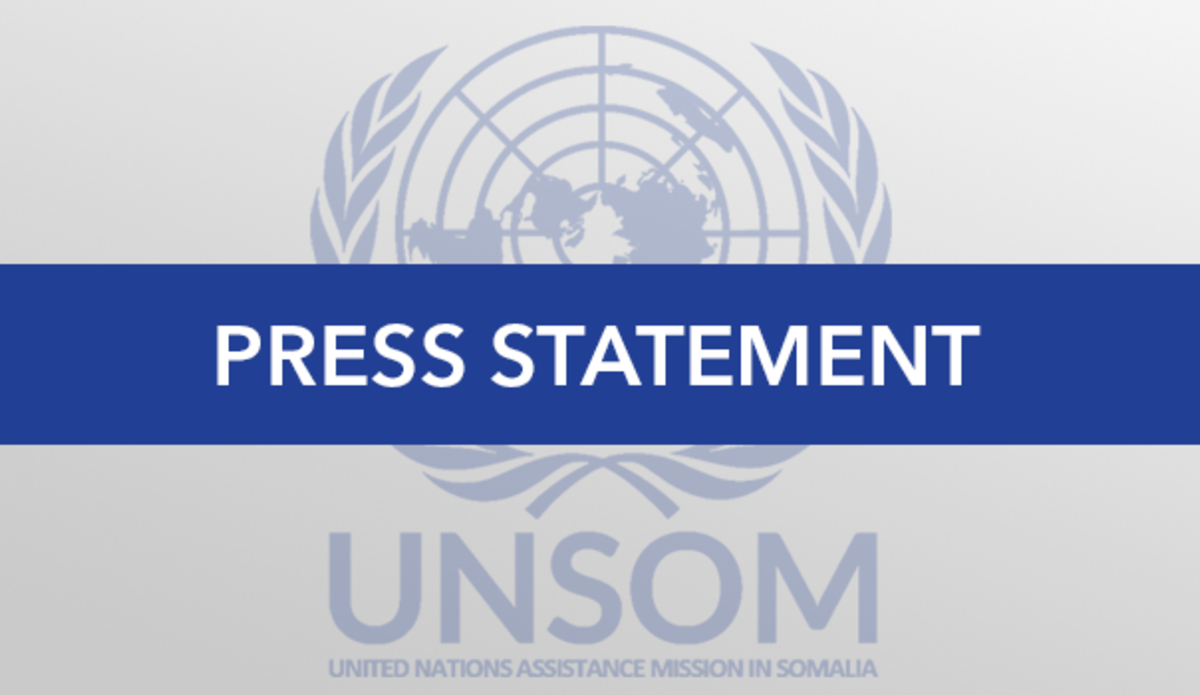At the end of a five-day visit to Somalia, Ivan Šimonović, the United Nations Assistant Secretary-General for human rights, called on the country’s international partners to increase their support to the Federal Government in its efforts to advance human rights. “Without increased support from its international partners, current gains made by Somalia in promoting and protecting human rights will be at risk,” Mr. Šimonović said at a press conference in Mogadishu, Somalia’s capital, shortly before leaving the country.
The Assistant Secretary-General noted that the Government has made meaningful progress in operations against Al Shabaab militia, in the implementation of the Human Rights Road Map, in reforming the justice and security sectors, in the state building process and the consultations on an electoral model for 2016. “Despite persisting challenges there is a significant improvement in the security situation in Somalia,” Mr. Šimonović noted at the press conference.
Somalia is also making progress in building and reforming its institutions, including in the security sector, he further noted, adding that during his meetings with government officials, he welcomed steps towards the adoption of a legislation for a National Human Rights Commission and urged the Parliament to ensure the Commission’s independence and its compliance with the Paris Principles.
Condemning the numerous abuses committed by Al Shabaab, Mr. Šimonović said that Somalia still face a series of serious human rights challenges. Moreover, in light of recent allegations of serious human rights violations committed during military operations, he called on the Government and all security forces operating in Somalia, including the Somali National Army, AMISOM and other foreign forces to take effective measures to prevent and address violations of international human rights and humanitarian law. “Violations of international human rights and humanitarian law affect the reputation and credibility of security forces. Such violations also alienate the population they are expected to protect, and therefore negatively affect the ultimate success in the fight against terrorism,” he said. In this regard, he recalled that UN entities were bound by a Human Rights Due Diligence Policy according to which the support they provide to national and international security forces must be based on compliance with international humanitarian, human rights and refugee law. Mr. Šimonović also visited a center for disengaged Al Shabaab combatants in Baidoa.
Stressing that overcoming terrorism in Somalia cannot solely be achieved through military means, Mr. Šimonović pointed to the need to address the root causes of terrorism, including poverty, corruption and lack of good governance, unemployment, social exclusion and marginalization. “It is important to strengthen democratic space with a free and strong civil society, gender equality and fundamental rights such as freedom of expression and association, as well as inclusivity in the ongoing national consultative process and sustained mainstreaming of human rights in the state building process” he added.
Reacting to the killing yesterday of civilians seeking humanitarian aid, the Assistant Secretary-General said he was “outraged,” stressing that perpetrators must be identified and punished. He underlined that “[p]eople receiving assistance are vulnerable. Access to humanitarian aid should benefit from a special level of protection. I call on national authorities to take the necessary security measures to ensure protection of this access”
 UN
UN





